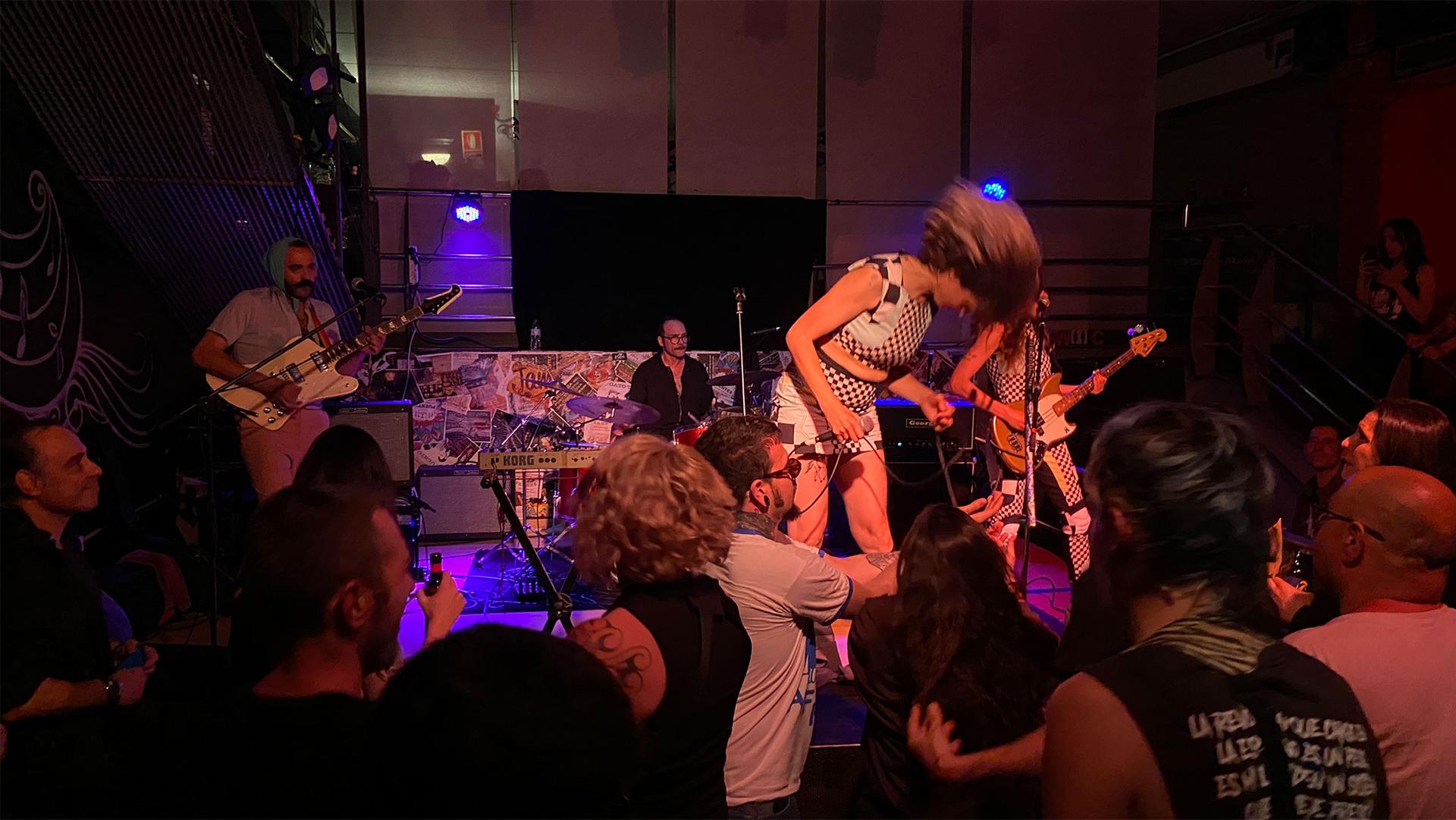Under an overpass along the waterfront in Tarragona, Spain, a sound check was wrapping up in a small, dark concert venue that smelled of beer.
Sandré, a neo-punk band from Barcelona, ripped into a heavy number with screaming vocals.
The group included Carles Pons on guitar, Marc Torrent on drums, Stafanía Lusini on bass and Rosa Pagès as the screamer. Between shouts Rosa also dove into the mosh pit in front of the stage.
After a very intense show, a young fan named Dani, or just “Dah,” approached the band outside, asking them to sign their LP record he had just bought. He said that seeing Sandré was an out-of-body experience.

“It’s the noise,” he explained. “The wall of sound, it just slams you. I’m not sure what I like about it, but the feeling is an addiction.”
Such enthusiasm still catches Sandre’s members by surprise. Sandré has been around for a few years, playing mostly at tiny clubs. But now, suddenly, they’ve been riding a new punk wave in Spain, with dozens of bands springing up across the country. The group has found itself on the bill for many big music festivals this summer, alongside popular rap, rock and reggaeton bands.
At a bar in Barcelona, Pagès and Torrent explained that what’s driving this punk resurgence is “shared rage.” Through the music, Torrent said, people can vent their anger together.
These are tough times for a lot of young Europeans. Some of them still suffer from post-COVID-19 depression. There’s also an economic crisis on the continent, with high inflation rates and low-paying jobs.
“There’s so much social inequality,” Torrent said. “Young people can’t afford rent or groceries.”
All the while, he added, social media is constantly bombarding everyone with happy images of how they’re supposed to be living.
“The truth is,” he said, “people are desperate.”
Sandré’s songs try to address that desperation. One tune, called “I Have it All,” is pure punk sarcasm.
The lyrics say: “I always wake up smiling/Happy like a meditator/I’m never rejected, or ignored.”
For some of the older people who turn up at Sandrés shows, it all might feel like déjà vu. Punk stormed into Spain from the United Kingdom in the late 1970s, just as Spain was emerging from decades of dictatorship, recalled DJ and punk musician David Caseby.
“From a very conservative, controlled country, there were all these new outlets,” he said. “And there was that shock value when punk first came out, as with Las Vulpess playing a cover version of ‘I Want to Be Your Dog,’ which kind of unsettled a few people in the media business.”
Las Vulpess was Spain’s first all-women punk band. Their sexually suggestive song caused a scandal on Spanish public television. And it cemented punk’s place on the scene, said Caseby, who lives and works gigs in Spain.
“Just watching a band like that coming on and just giving it all,” he said, “it was so exciting and so fresh at the time for them.”
Punk is defined by its sound and attitude. But, said Rosa Pagès from Sandré — unlike classic punk rockers like the Sex Pistols, the Ramones or The Clash — Sandré includes self-deprecation in its songs.
“We sing about things people connect with, but never too seriously,” she said. “There’s always a wink. Sure, everything’s gone to crap,” she laughed, “and everyone’s a jackass. But we’re the first to admit that we are, too. People relate to that.”
